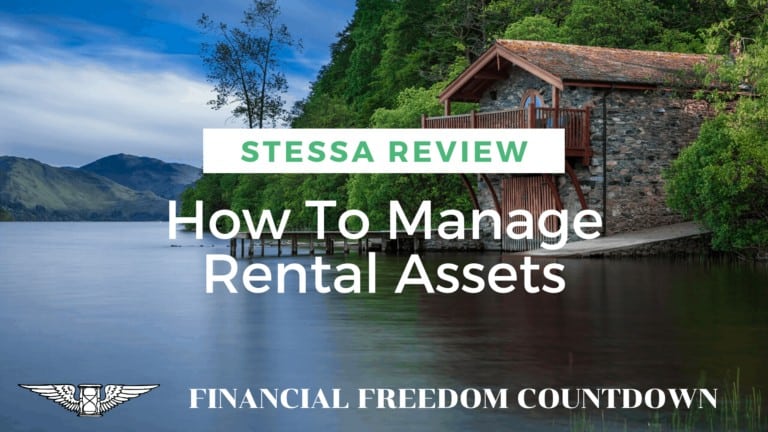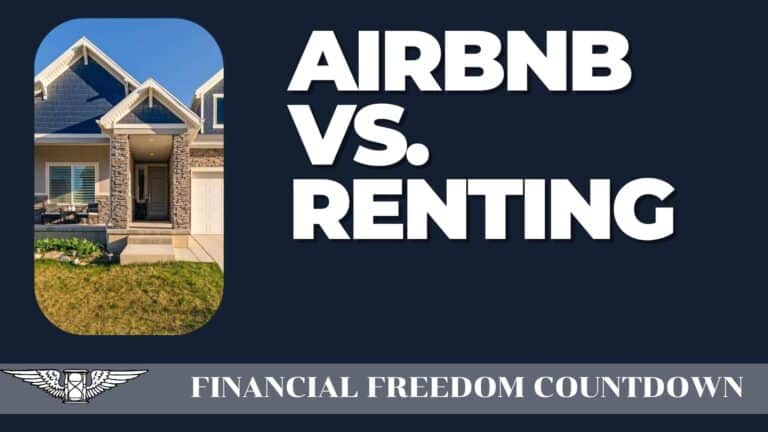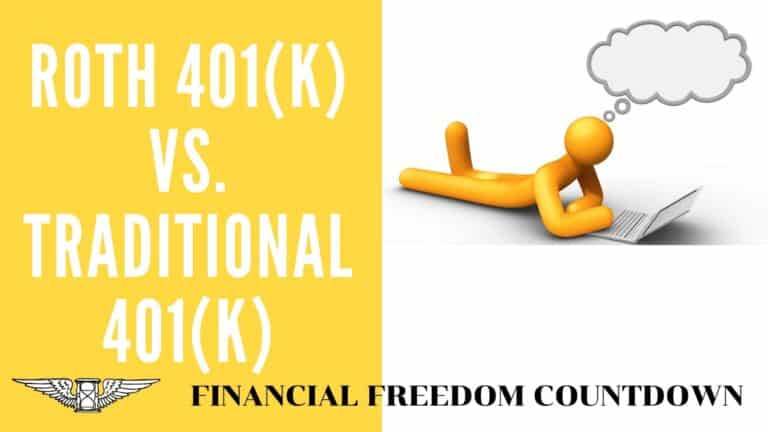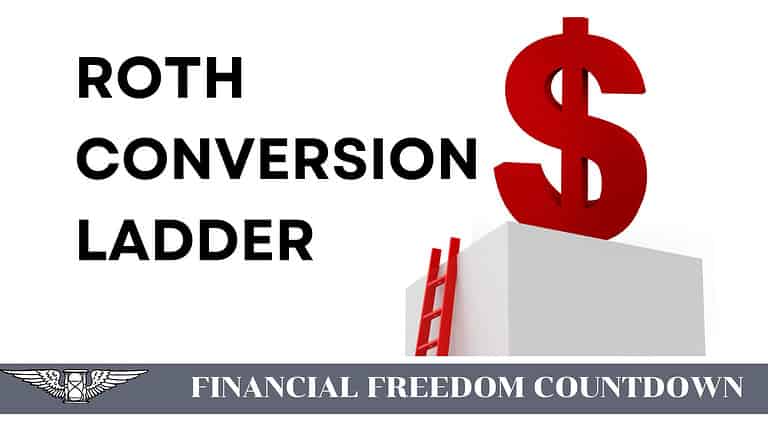Creative Financing for Real Estate: 16 Ways To Own Real Estate

Are you looking to purchase your real estate for a primary home or investment property but don’t have all the money saved?
Real estate is one of the most expensive income-producing assets a person can buy. Most of the time, financing a real estate purchase is relatively straightforward. An individual interested in buying a house will find a home they like, go through a credit check, pre-qualify for the home, and make a purchase.
However, sometimes, a traditional bank loan may fail to work. In those instances, a person may have to look at creative real estate financing. Fortunately, there are fifteen creative financing techniques to help a person move forward with their property purchase.
What Is Creative Real Estate Investing?
Creative financing for real estate means finding alternative or less orthodox methods besides traditional financing to buy properties.
First, it’s essential to define what exactly is meant by creative financing. In a standard form of real estate financing, a person will qualify for a mortgage or traditional loan from a bank. There are also other ways that someone may purchase a residential or commercial real estate property, like paying cash for it in full.
However, sometimes, creative financing is necessary.
Creative financing is NOT using one’s own money, like bringing enough of someone’s cash to a deal. Creative financing involves using other people’s money to finalize a real estate purchase.
Creative financing is referred to this way because it is far less common. There may be fewer regulations or other methods of financial safety involved. As a result, a person pursuing creative financing may expose themselves to more financial risk, higher down payment, or greater interest rates. However, creative financing is sometimes necessary to complete real estate deals, mainly if more traditional forms of real estate funding – like a mortgage or bank loan – are unavailable.
Despite the risks, successful real estate investors know that sometimes, they must pursue more creative funding and eschew a conventional lender to obtain the money necessary to meet a purchase price.
15 Creative Financing Ideas for Real Estate Investors
Legal restrictions and simple human creativity are the only limits on more creative forms of real estate financing. Over time, real estate investors and private money lenders have become highly adept at finding innovative ways of loaning money and ensuring that individuals can have the cash they need to complete real estate investing. As such, successful real estate investors who want to purchase a commercial or residential investment property have developed the following creative financing options.
Hard Money Loans
Sometimes, a traditional lender or financial institution may be unable or unwilling to finance a real estate deal. In such instances, many investors will turn to hard money loans. Hard money loans are not the preferable forms of financing, but when an investor has no other option, they are a final resort.
With a hard money loan, a borrower will turn to an individual, consortium, or organization with its finances or line of credit. Another real property secures the loan itself. As such, hard money loans are not options for people trying to get their first mortgage but don’t own any property. They are usually used by real estate investors trying to buy more property or expand their real estate holdings.
It is important to note that hard money loans are usually held for only a short period. A person who takes out a hard money loan will usually try to convert this real estate investment into a more stable form of financing, like a traditional 15 or 30-year mortgage.
Hard money loans typically don’t sit in an investment portfolio for long, as these are both risky and have very high-interest rates. Furthermore, the risks of hard money loans are significant: If a hard money loan goes wrong, a person risks losing the property they have used to secure these private loans.
The terms of a hard money loan are not set in stone, and the real estate investor and the hard money lender can negotiate the terms. While this is one of the riskier creative financing strategies, investors can still use it if traditional mortgages or loans are unavailable.
The biggest con of hard money lending is access to the network of hard money lenders. Groundfloor Lending offers private money to companies needing hard money loans with no minimum experience in transactions.
Private Mortgages
A private mortgage is similar to hard money loans; however, a private mortgage is more likely to be held for an extended period.
In cases where an investor cannot acquire a mortgage from a bank or financial institution, private mortgages become a viable financing strategy. The investor will borrow an extensive amount of money from another person – similar to a mortgage from a bank – and pay that money back over time. Like a hard money loan, lenders and borrowers can negotiate everything about the funding. The borrower and lender will work together to determine the down payment, monthly payment, and other loan terms, which they will document in a real estate note.
Private mortgages are often between family members or friends and work well for the lenders, enabling them to build a real estate passive income source and turn someone else’s investment property into profit. The private money lender enjoys the advantages of real estate without needing to deal with the basics of being a landlord.
Many people may turn to a private mortgage to get the needed funding because,
- Someone has bad credit to get approval from a bank or other traditional lender.
- A person may find it more beneficial to use a family member or friend, as they may be able to acquire more favorable terms.
- A motivated seller may be interested in quickly closing the deal, and the private mortgage is faster.
It is important to remember that personal loans are less regulated than other forms of financing. Since all terms are negotiable, either the borrower or seller may find themselves in a situation where they borrow more money than they can afford or on less-than-favorable terms. As such, it is often preferable – or at least safer – for someone to borrow money from a bank or other traditional financial institution. While it is easier to qualify for such a loan, there are also extensive potential downsides. The buyer and seller must use caution before using this type of financing to purchase investment properties.
It is also difficult to standardize these types of deals. Different private money lenders will use various forms of financing, qualifications, and limitations when executing these loans. , a person who takes out a private mortgage may find themselves locked in on these terms for an extended period – potentially even the length of the loan. Borrowers should ensure that they are familiar with the terms and are getting the best deal possible before signing the promissory note.
Cash-Out Refinancing
Cash-out refinancing is another method of expanding one’s holdings in the real estate market. You can use cash-out refinancing to pull the equity you’ve built out of one of your properties and then put that financing into another property. They are similar to home equity loans because they allow you to turn your equity into a profit and tool for future financial investment.
A cash-out refinance has much better interest terms than a traditional home equity loan. Also, another great perk is that the interest on a cash-out refinance is tax deductible, which generally isn’t the case when borrowing money from other sources like hard money lenders or conventional financial institutions.
This creative financing strategy is typically best for individuals who want to expand their residential holdings.
Cash-out financing enables you to access the money you wouldn’t otherwise have. This makes it a highly beneficial financing form: You can use your equity to build your real estate empire. This makes it one of the better creative financing methods and one that allows you to use a cash-out refinance for future growth. It’s essential to remember that a cash-out refinance you to take out a larger mortgage loan. As such, you are using the proceeds of a cash-out refinance to incur more significant debt.
Cash-out refinancing usually works best when someone can’t access a traditional home equity loan, mortgage loan, or another form of financing. You do have to own existing property for this to be an option. Still, it can be perfect for expanding access to cash for real estate deals, particularly if you have an expansion-minded approach to your real estate holdings.
If you are considering a cash-out refinance, remember that this means resetting your mortgage term. In other words, the 30-year clock starts over again. Additionally, the new monthly payments may become difficult to handle if something unexpected occurs down the road–say, an illness or job loss.
Home Equity Line of Credit
A home equity line of credit (HELOC) differs from a cash-out refinance because you don’t have to pay off the original mortgage. With this loan, you borrow against your home’s value — up to 80% minus the mortgage amount.
A HELOC typically has a ten-year draws period during which you can access funds, followed by a repayment period that usually lasts no more than 15 years. Like cash-out refinancing interest, the interest on a HELOC is tax-deductible but capped at $100,000.
When is it better to use a HELOC instead of a cash-out refinance? You can use a HELOC for more minor expenses like repairs to your home or a rental property. Another great use of HELOCs is for value-added real estate to create a secondary source of passive income.
In fact, with the boom in self-storage investing, you can add a storage unit to the property.
Sign up for Neighbor and get paid to store things. You can earn $100-$400 per month as passive income with unused space. You get to pick WHO, WHAT, and WHEN items are stored. And the platform comes with $1,000,000 host liability protection.
You list your space for free, review the renter’s request (including what and when they want to store), and approve as per your criteria. You can list a garage, RV pad, closet, empty lot, shed, and basement as available rental space.
Seller Financing
Most people are familiar with bank financing. Bank financing is the traditional form of saving up for a down payment, then using banks or other financial institutions to get a loan. The bank then owns the mortgage, and the owner’s job is to make their mortgage payments until they have satisfied their bank requirements.
Seller financing is a different form of financing used when the owner and the seller want to cut banks and other institutions out of the financing process. With seller financing, the seller and the new owner work out terms for purchasing the property. It includes the length of a loan, interest rates, monthly payments, down payments, and consequences for default. As such, seller financing requires extensive negotiations with the actual owner of the property.
Seller financing can be preferable to bank financing in many ways. It can speed up the process of refinancing and cut out various fees. It can save time and, ultimately, money. Sellers willing to incur the risk of seller financing can make more money and turn over a property faster. Interest rates are usually higher with seller financing, which can mean that a seller can make more money.
Of course, there are risks, including the possibility of default and the potential for messy legal battles. As such, both the seller and the buyer must use extreme caution before using this method of financing.
If you’re an investor interested in seller financing, be prepared to look around and have a conversation with the property owner. It would help if you educated the owners on the benefits and how seller financing can turn the property into a monthly income investment.
Self-Directed IRA
Another creative way to purchase real estate is with a self-directed IRA. This creative financing option allows your IRA to finance real estate purchases. You can use the money in the IRA to make real estate purchases, then hold the investments within that IRA as a method of potentially deferring taxes.
A self-directed IRA is a great way to dramatically increase your retirement savings and money in your IRA funds. Depending on your IRA’s nature, you can use IRA funds to expand your real estate holdings tax-free. You can execute a purchase and sale agreement within the IRA, and this is another way that demonstrates just how creative financing works for your taxes.
One should not assume that this method of financing real estate purchases is for everyone. There are many potential downsides: A self-directed IRA can be extremely complicated to execute and can lead to extensive financial or real estate bills that you would not incur otherwise. As such, you can view a self-directed IRA real estate purchase less from the perspective of creative financing deals. Instead, seeing it as a unique method to enhance your retirement assets may be more beneficial.
If the amount in your IRA is only enough to cover the down payment, you’re only getting tax advantages based on the amount of money invested from your IRA- not through financing.
Please keep in mind that you can only use money from your IRA to pay for expenses related to the investment; no other funding sources are allowed. Make sure you have a comfortable amount of money in your IRA before investing. You cannot use your labor to fix anything in the investment property. Maintain detailed records, or the IRS could invalidate the entire IRA tax shelter.
Use experienced self-directed IRA providers who have expertise in the field.
Rocket Dollar is a self-directed IRA and solo 401k provider. LLC creation is a complex process, but Rocket Dollar simplifies the process
401(k) Loan
If you’re looking to invest in real estate but don’t have the money, borrowing against your 401(k) is an option. In most cases, you can borrow up to 50% of your total 401(k) balance, with a maximum loan amount of $50,000.
You can use that loan for a down payment on a rental property or to finance the renovations needed for a fix-and-flip or live-in flip property.
Since these loans use your 401(k) account as collateral with a low loan-to-value ratio, they typically come with low-interest rates.
Unfortunately, many 401(k) administrators don’t allow loans from the account. Also, if you lose your job, you must pay the 401(k) loan back immediately to avoid IRS considering the loan as a withdrawal and further imposing additional taxes and penalties.
While the math between real estate vs. stocks is easy to calculate, the tax advantage of 401(k) makes the calculation between real estate vs. 401(k) more nuanced.
Lease Option
A lease option property is an excellent way for investors to purchase a property from a landlord at the end of the lease agreement. It permits investors to generate equity through monthly rent payments and allows landlords to earn interest income. Based on the contract’s particulars, a sum of the rental payments will contribute towards the down payment for the home.
Lease options are standard with rent-to-own mobile homes but can be applied to single-family and multifamily investing.
When looking for a lease option contract, investors’ most prominent difficulty is finding the perfect landlord to partner with. This arrangement is usually created when an owner needs help to sell their rental property.
Lease option contracts are also a viable route to homeownership, especially for individuals who do not have excellent credit scores.
Bad credit impacts your interest rate or ability to get a loan.
Identity theft can destroy your credit, and low scores can prove extremely expensive when applying for a mortgage.
Credit Karma partners with Equifax and TransUnion and offers free credit reports and free credit scores updated weekly. It also provides alerts when it detects unusual activity on your credit files. Follow the Credit Karma recommendations on improving your credit.
You can also sign up with Transunion with a paid subscription for additional monitoring and peace of mind.
Cross Collateralization
If you have equity in another property, you can use it as extra collateral when applying for an investment property loan. The lender will then have a first lien position on the new property being bought and a second lien position on your existing property.
In exchange for lending you the entire purchase price, they don’t require a down payment.
Defaulting on the loan puts you at risk of losing the new property used as collateral and the other property.
Real Estate Crowdfunding
Real estate crowdfunding, also known as crowdfunded investing or property crowdfunding, allows several investors to pool their money together and buy a real estate investment property with the contributed pool.
Fundrise is one of the top real estate crowdfunding platforms for non-accredited investors. Sign up for free and look at passive real estate investment opportunities with a low minimum (only $10).
Several crowdfunded platforms are available for investors to participate in crowdfunding arrangements. You can list your deal on these crowdfunded platforms and solicit funds.
Ensure that you look at the checklist for evaluating crowdfunded deals and try to make your deal as attractive as possible for real estate investors. Consider signing up and investing in some of the existing deals, so you understand the process from the perspective of retail investors.
Real Estate Syndication
A real estate syndication is a legal structure for individual investors to pool money together for investing in large real estate deals. The legal arrangement is either a Limited Liability Company (LLC) or a Limited Partnership (LP).
Instead of relying on crowdfunding platforms, you can directly reach out to individuals meeting the accredited investor status.
Ensure you have defined the legal structure and the Private Placement Memorandum (PPM) before raising capital from real estate investors. Define the waterfall equity distribution split and be upfront with investors on possible capital calls and risks.
Real estate syndication is a popular creative financing strategy for apartment building investment.
PeerStreet, EquityMultiple and AcreTrader are best real estate syndication companies providing opportunities to compare and invest in residential, commercial real estate and farmland deals, respectively for accredited investors.
Subject-To Deal
In a subject-to-transaction, the buyer can take the property title without traditionally getting a loan. The seller leaves their existing financing unchanged. In a subject-to-deal, an investor will take over the existing loan that is on a property. The buyer of the property will continue to make their mortgage payments as if nothing happened – the only thing that will have changed, from their perspective, is to who they make their payment.
A subject-to type of deal enables investors to own the financing of a property. The seller will deed the property over to the buyer but the mortgage will stay in the seller’s name. It lets sellers get rid of a property, even if they cannot get the complete funding for the deal. The buyer will continue to make mortgage payments, and the seller will maintain the mortgage until it has been paid off.
This process is similar to assumable mortgages, but the significant difference is that it typically occurs without the original lender’s knowledge and operates independently from the originally agreed-upon terms of the loan.
If the original lender disapproves of the transaction, the lender can trigger the “due-on-sale” clause, and the buyer would be forced to pay the entire loan balance. Also the seller could have concerns for still being responsible for the loan. Due to the risks involved with the “subject-to” method, it is best avoided.
Wrap-around Mortgage
Wrap-around mortgages are a variation of the “assumable” and “subject-to” mortgages. For example, if you have a 4% mortgage you can create a 5% wrap-around mortgage and profit from the deal.
Alternatively you could also use wraps to pass-on a favorable mortgage rate to your children.
You should seek a real estate attorney and check if a wraparound mortgage can work for you. In Texas and several other states if you sell to a direct family member like a child, the “due-on-sale” clause can’t be triggered.
Interest-Only Loans
Interest-only loans were popular before the Great Financial Crisis and, to a large extent, may even have triggered the housing crash. Interest-only loans benefit investors interested in quickly purchasing, repairing, and selling a property. Long-term investors must eventually opt for an Adjustable Rate Mortgage (ARM) or fixed rate mortgage.
Interest-only financing enables you to make lower payments at the beginning of the loan, providing more money for renovations. When you sell the property at a profit, you can pay off the entire loan, having paid minimal interest.
Master Lease Agreement
Master lease agreements are more common in commercial real estate investing, but you can also use them with residential real estate.
A master lease is a primary agreement that leases a property to an individual with the right to sublet it during the lease duration.
After paying the monthly lease, the lessee managing and operating the property gets to keep all remaining profits.
By signing a master lease, the lessee obtains the right to profit from the property without any financial investment. In some cases, there may be an option for the lessee to buy the property outright, resulting in them receiving the legal title of ownership.
Short Sale
Short sales are typical when a property is underwater, and the seller owes more on the property than it is worth. There may be several reasons behind the need for a short sale, including that a seller is behind on the mortgage or changes to the property’s real estate value that have made the property go underwater.
With a short sale, a bank or holder of the loan is willing to accept less than the property is worth as part of a sale. It means they will be ready to forgo any chance of collecting the remainder of the loan balance. Short sales are highly regulated, and banks and financial institutions are often unwilling to accept a short sale unless the owner can show real economic hardships.
Short sales may provide desperate and motivated sellers the chance to dispose of a property quickly, avoiding the credit blemishes and costs of foreclosure. In these instances, the bank and the seller will ultimately lose money on the deal. However, someone interested in buying a property can get it at a discounted price, resulting in immediate property equity gain.
Short-sale homes are often in bad condition or less-than-desirable sections of a neighborhood, often making them ideal as a first investment deal.
Is Creative Real Estate Financing Illegal?
No. However, it may be more financially dangerous, depending on the specific circumstances of the loan.
It is imperative to note that creative financing is not meant to serve as a stand-in term for anything illegal. Unless explicitly indicated by relevant federal, state, or local law, an individual can use any creative financing strategy to complete a real estate deal.
However, creative financing does mean that there may be fewer regulations around a particular area of finance. A person is exposed to more risk, including an increased chance of getting ripped off by unscrupulous real estate investors. As such, an individual who pursues more creative real estate financing options should make sure that they use extreme caution and thoroughly investigate a deal to avoid losing their money.
Are Creative Finance Deals Worth It?
Creative financing help individuals invest in real estate with little to no money down. If you are going to pursue any of the innovative techniques, make sure to research their viability thoroughly.
Join local real estate groups and read the best books on real estate investing to increase your knowledge. Remember that creative financing contains much more risk, and be prepared to ensure that you are protecting your financial interests.
As you can see, there is a slew of methods a person can use to close a real estate deal and obtain investment property loans necessary to finalize real estate financing. That’s not to say that all of the above are necessarily good ideas. In many instances, it is preferable first to pursue traditional real estate financing to increase your average net worth.
However, suppose traditional lenders fail to meet your real estate needs; any of the above strategies may prove viable in your effort to create generational wealth.

John Dealbreuin came from a third world country to the US with only $1,000 not knowing anyone; guided by an immigrant dream. In 12 years, he achieved his retirement number.
He started Financial Freedom Countdown to help everyone think differently about their financial challenges and live their best lives. John resides in the San Francisco Bay Area enjoying nature trails and weight training.
Here are his recommended tools
M1 Finance: John compared M1 Finance against Vanguard, Schwab, Fidelity, Wealthfront and Betterment to find the perfect investment platform. He uses it due to zero fees, very low minimums, automated investment with automatic rebalancing. The pre-built asset allocations and fractional shares helps one get started right away.
Personal Capital: This is a free tool John uses to track his net worth on a regular basis and as a retirement planner. It also alerts him wrt hidden fees and has a budget tracker included.
Streitwise is available for accredited and non-accredited investors. They have one of the lowest fees and high “skin in the game,” with over $5M of capital invested by founders in the deals. It is also open to foreign/non-USA investor. Minimum investment is $5,000.
Platforms like Yieldstreet provide investment options in art, legal, structured notes, venture capital, etc. They also have fixed-income portfolios spread across multiple asset classes with a single investment with low minimums of $10,000.






